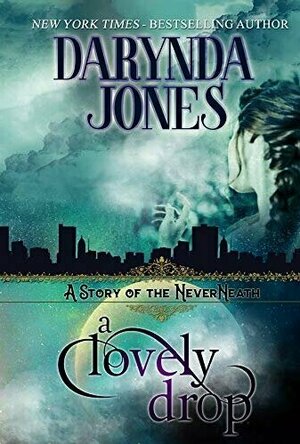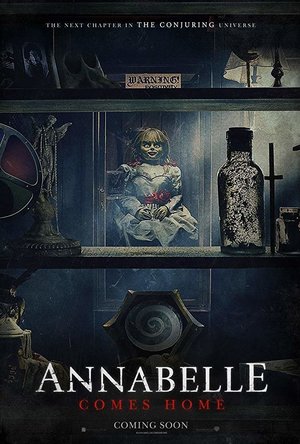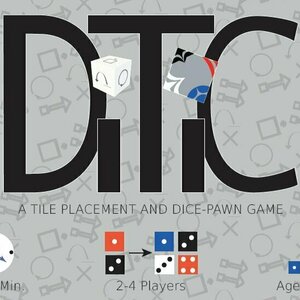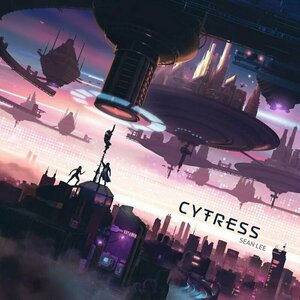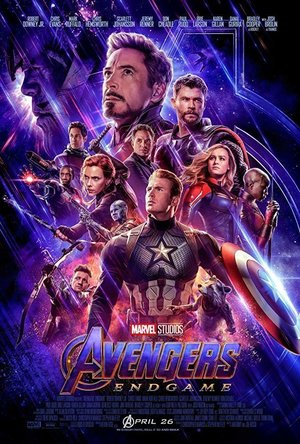Search
Search results
Lyndsey Gollogly (2893 KP) rated A Lovely Drop in Books
Jan 16, 2021
12 of 250
Kindle
A Lovely Drop
By Darynda Jones
Once read a review will be written via Smashbomb and link posted in comments
A woman who claims to do the impossible...
Andrea Grace comes from a long line of women who can do the impossible: They can eavesdrop on the past. But ever since her mother's suspicious death, Andrea has led a half-life, guarding herself from those who would kill to get their hands on her. From heads of states to the most violent criminals craving what she has to offer, every drop she makes puts her at risk.
But one fateful night, Andrea decides to anonymously help authorities solve a murder, a particularly horrendous one, and she gets a taste of what it feels like to use her powers for good. And she's hooked. She continues solving crimes with no one the wiser and does so for years until one single mistake gets her caught. And what does she do to get out of the bind she finds herself in? She tells the ludicrous, inconceivable truth.
...meets a man who believes her.
Special Agent Sebastian Strand is almost desperate enough to believe the girl's claim that she can see through the veil of time. Almost. But when he tests the defiant redhead and discovers her gift seems as real as the resentment she wears like a bulletproof vest, he asks for her help to stop a terrorist.
Now, the only element Andrea's been able to control her whole life is the only thing she needs more of as she races against time with an FBI agent hell-bent on saving the world. But will she be too late to save the embittered man's life? Or will she lose her own life, not to mention her heart, before time runs out?
I love Darynda and I really enjoyed this novella! The idea behind it is brilliant and I’m hoping we get some more. I was also a little bit disappointed as it kinda lacked something I can’t put my finger on. Overall a good novella
Kindle
A Lovely Drop
By Darynda Jones
Once read a review will be written via Smashbomb and link posted in comments
A woman who claims to do the impossible...
Andrea Grace comes from a long line of women who can do the impossible: They can eavesdrop on the past. But ever since her mother's suspicious death, Andrea has led a half-life, guarding herself from those who would kill to get their hands on her. From heads of states to the most violent criminals craving what she has to offer, every drop she makes puts her at risk.
But one fateful night, Andrea decides to anonymously help authorities solve a murder, a particularly horrendous one, and she gets a taste of what it feels like to use her powers for good. And she's hooked. She continues solving crimes with no one the wiser and does so for years until one single mistake gets her caught. And what does she do to get out of the bind she finds herself in? She tells the ludicrous, inconceivable truth.
...meets a man who believes her.
Special Agent Sebastian Strand is almost desperate enough to believe the girl's claim that she can see through the veil of time. Almost. But when he tests the defiant redhead and discovers her gift seems as real as the resentment she wears like a bulletproof vest, he asks for her help to stop a terrorist.
Now, the only element Andrea's been able to control her whole life is the only thing she needs more of as she races against time with an FBI agent hell-bent on saving the world. But will she be too late to save the embittered man's life? Or will she lose her own life, not to mention her heart, before time runs out?
I love Darynda and I really enjoyed this novella! The idea behind it is brilliant and I’m hoping we get some more. I was also a little bit disappointed as it kinda lacked something I can’t put my finger on. Overall a good novella
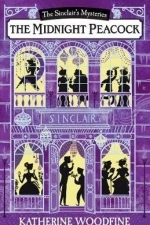
The Midnight Peacock: The Sinclair's Mysteries
Book
A fast-paced historical mystery adventure for readers aged 9+ years, with gorgeous Edwardian period...
young adult crime
Merissa (13780 KP) rated Severus (Fueled By Lust #2) in Books
Apr 6, 2023 (Updated Apr 10, 2023)
I am LOVING this Fueled by Lust series. Drusus started off with a bang (quite literally), Severus has more of a gentle build-up. This is because Cassie and Severus have already met and spent some time together, thereby negating the need for a quick pesky 'get-to-know-you' session. Cassie is already attracted to Severus although she's been trying to put him off as she thinks he is too good for her. Severus already knows that Cassie is something special but refuses to think that it could be anything else and he's too damn stubborn to put his necklace on. Yeesh, that man had me shouting at my Kindle!
Cassie has been through the mill and found a wonderful and true friend in Lina, the likes of which you look after and treasure if you're smart which Cassie is. Seeing Lina with Drusus makes Cassie yearn for the same thing but is convinced that with all the baggage she carries no one will be good enough - or too good.
I won't give away any spoilers but I will say this - one thing I really loved about this story was Marcus. He is Cassie's ex-boyfriend, the one she mentioned at the beginning of Drusus. He could have been a real 'nasty' character but instead, Celeste turned him into a likeable, heartfelt hero who, although I wanted Severus and Cassie to be together, I now want Marcus to get his HEA too.
This book has everything you could wish for - amazing characters, wit and humour all the way through, a 'baddie' that you may or may not see coming but even if you do, you won't care as the story is that good, and steamy scenes that are "out of this world" (sorry, I couldn't resist!).
Book 1 was brilliant and I really enjoyed it. Book 2 stepped up to the bar, ordered a double and raised it. I can't wait for Cato's story.
* A copy of this book was provided to me with no requirements for a review. I voluntarily read this book, and the comments here are my honest opinion. *
Merissa
Archaeolibrarian - I Dig Good Books!
September 2, 2016
Cassie has been through the mill and found a wonderful and true friend in Lina, the likes of which you look after and treasure if you're smart which Cassie is. Seeing Lina with Drusus makes Cassie yearn for the same thing but is convinced that with all the baggage she carries no one will be good enough - or too good.
I won't give away any spoilers but I will say this - one thing I really loved about this story was Marcus. He is Cassie's ex-boyfriend, the one she mentioned at the beginning of Drusus. He could have been a real 'nasty' character but instead, Celeste turned him into a likeable, heartfelt hero who, although I wanted Severus and Cassie to be together, I now want Marcus to get his HEA too.
This book has everything you could wish for - amazing characters, wit and humour all the way through, a 'baddie' that you may or may not see coming but even if you do, you won't care as the story is that good, and steamy scenes that are "out of this world" (sorry, I couldn't resist!).
Book 1 was brilliant and I really enjoyed it. Book 2 stepped up to the bar, ordered a double and raised it. I can't wait for Cato's story.
* A copy of this book was provided to me with no requirements for a review. I voluntarily read this book, and the comments here are my honest opinion. *
Merissa
Archaeolibrarian - I Dig Good Books!
September 2, 2016
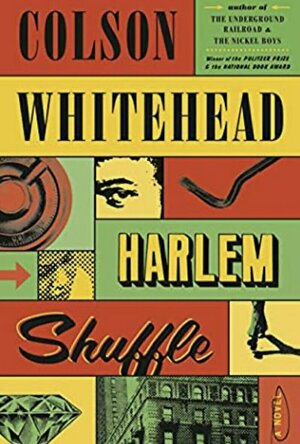
Harlem Shuffle
Book
From the two-time Pulitzer Prize-winning author of The Underground Railroad and The Nickel Boys, a...
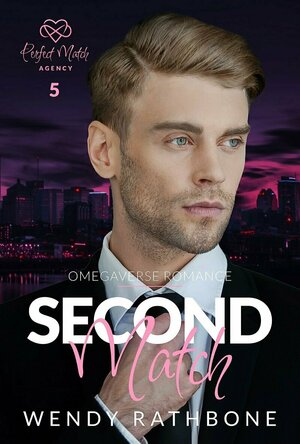
Second Match (Perfect Match Agency #5)
Book
One failed attempt with the Perfect Match Agency leads to a second—will this omega be The One? ...
MM Omegaverse possible Mpreg Romance

Fiverr - Freelance Services
Business and Lifestyle
App
Business owner working around the clock? Rushing to complete a project? Entrepreneur on-the-go? Say...
Emma @ The Movies (1786 KP) rated Annabelle Comes Home (2019) in Movies
Jun 20, 2020
God help me I don't know why I went to see this.
The Warrens have contained Annabelle, her influence is safely blocked by a box crafted from sacred glass and they've locked her up in their artefact room. A year goes by without incident, but when their babysitter's friend visits unannounced, curious and looking for answers, the relative peace of the house is shattered.
Daniela unwittingly unleashes Annabelle's power onto the house and the three of them inside. The spirits in the Warren's basement are gradually escaping and coming out to play.
While me and horror don't mix, I do occasionally like the idea behind some of them. A story about objects with power like Annabelle Comes Home really appealed to me as I'm a fan of this sort of supernatural malarkey. As such, I decided to suck it up and be brave. I'm mainly glad I gave it a go... mainly.
This is the first horror film I have ever seen that has had any effect on me after seeing it. Most I just forget about and move on to the next, Annabelle Comes Home really messed with me though. I got up in the night and when I got back to bed I thought about it for the briefest moment and spent the next hour with the light on scrolling through Pinterest. Even when watching it at the cinema there were genuine moments where I was scared, not just the jumping out of my seat kind. Actually, I was impressed that it didn't just rely on the jump scare as a way of getting to its audience. More movies are doing that these days and it just feels like a very cheap way of trying for horror.
The scares here were much more... subtle... but subtle is absolutely not the right words. What I mean is that they were crafted in a much better and natural way than something popping out and screaming in your face. There is a moment with the bride where the shot genuinely moves so swiftly that it's almost inducing panic in you because you can't quite work out what's happening.
All of the spirits in the house are incredibly well done visually. The Ferryman in particular is very effective, it's amazing how something as simple as the sound of coins can add to the tension. When I said "all" at the beginning of this paragraph I did overstate slightly, there's one exception. Sadly Bob (our bit part love interest) is stuck outside trying to fend off a werewolf. I feel like the chances are high that he was designed for a Scooby Doo movie that was never produced. It's got a slightly cartoonish quality to it and when you add in the excess of rolling fog it becomes the least believable of all the unbelievable things.
Speaking of Bob, as a character, while adorable, does feel out of place as well. But the addition of this lighter storyline probably saved me from having a complete breakdown right in the cinema.
Daniela, the girl who can't read warning labels, left me annoyed. She's curious and looking for answers but it also feels like she's not convinced that the Warrens are for real. Either way, why would you play with the thing that is not only inside a locked room, but inside a locked box inside the locked room and has a very clear sign saying not to open it? Surely the only thing that's inside the box apart from a creepy doll and a chair is eternal damnation.
I thought that Madison Iseman as the babysitter Mary Ellen was a really good call in this. She's incredibly believable throughout and managed not to overact. Let's face it, there's always a strong chance of that in horror.
Finding out that Vera Farmiga and Patrick Wilson were barely in it was extremely disappointing. They're both good actors with a host of top roles under their belts and I'd been looking forward to seeing them on screen together. Once the set up is done though it's over to the younger cast members as Ed and Lorraine Warren go off on a trip. They do appear later in the film, but only after the action's conclusion to participate in the bizarrely conceived ending.
Mckenna Grace managed to deal with some of the creepy moments really well but I didn't feel like there was really much for her to do. Everything was very much guided by Mary Ellen and Daniela, and when she did get a moment on the screen it was swiftly snatched away by something else. Potentially by design I guess, but there wasn't much chance to make the role come alive.
I've not seen any of the other films in this franchise, and honestly, probably won't now. If someone who has could tell me if the others are as formulaic as this one I would appreciate it. I'm not saying formulaic is bad, sometimes knowing what's coming is easier to deal with, I'm sure it really helped me with this film. Near the beginning we have a sequence that gives you a checklist of things to wait for. Would I have stuck it out if I hadn't known what to look out for? Would some of those things scared me enough to leave? We'll never know.
I'm glad I managed to stick with it, the idea had been what really intrigued me and I feel like that came through well. Despite other issues with predictability and characters I actually enjoyed this film.
Originally posted on: https://emmaatthemovies.blogspot.com/2019/07/annabelle-comes-home-movie-review.html
The Warrens have contained Annabelle, her influence is safely blocked by a box crafted from sacred glass and they've locked her up in their artefact room. A year goes by without incident, but when their babysitter's friend visits unannounced, curious and looking for answers, the relative peace of the house is shattered.
Daniela unwittingly unleashes Annabelle's power onto the house and the three of them inside. The spirits in the Warren's basement are gradually escaping and coming out to play.
While me and horror don't mix, I do occasionally like the idea behind some of them. A story about objects with power like Annabelle Comes Home really appealed to me as I'm a fan of this sort of supernatural malarkey. As such, I decided to suck it up and be brave. I'm mainly glad I gave it a go... mainly.
This is the first horror film I have ever seen that has had any effect on me after seeing it. Most I just forget about and move on to the next, Annabelle Comes Home really messed with me though. I got up in the night and when I got back to bed I thought about it for the briefest moment and spent the next hour with the light on scrolling through Pinterest. Even when watching it at the cinema there were genuine moments where I was scared, not just the jumping out of my seat kind. Actually, I was impressed that it didn't just rely on the jump scare as a way of getting to its audience. More movies are doing that these days and it just feels like a very cheap way of trying for horror.
The scares here were much more... subtle... but subtle is absolutely not the right words. What I mean is that they were crafted in a much better and natural way than something popping out and screaming in your face. There is a moment with the bride where the shot genuinely moves so swiftly that it's almost inducing panic in you because you can't quite work out what's happening.
All of the spirits in the house are incredibly well done visually. The Ferryman in particular is very effective, it's amazing how something as simple as the sound of coins can add to the tension. When I said "all" at the beginning of this paragraph I did overstate slightly, there's one exception. Sadly Bob (our bit part love interest) is stuck outside trying to fend off a werewolf. I feel like the chances are high that he was designed for a Scooby Doo movie that was never produced. It's got a slightly cartoonish quality to it and when you add in the excess of rolling fog it becomes the least believable of all the unbelievable things.
Speaking of Bob, as a character, while adorable, does feel out of place as well. But the addition of this lighter storyline probably saved me from having a complete breakdown right in the cinema.
Daniela, the girl who can't read warning labels, left me annoyed. She's curious and looking for answers but it also feels like she's not convinced that the Warrens are for real. Either way, why would you play with the thing that is not only inside a locked room, but inside a locked box inside the locked room and has a very clear sign saying not to open it? Surely the only thing that's inside the box apart from a creepy doll and a chair is eternal damnation.
I thought that Madison Iseman as the babysitter Mary Ellen was a really good call in this. She's incredibly believable throughout and managed not to overact. Let's face it, there's always a strong chance of that in horror.
Finding out that Vera Farmiga and Patrick Wilson were barely in it was extremely disappointing. They're both good actors with a host of top roles under their belts and I'd been looking forward to seeing them on screen together. Once the set up is done though it's over to the younger cast members as Ed and Lorraine Warren go off on a trip. They do appear later in the film, but only after the action's conclusion to participate in the bizarrely conceived ending.
Mckenna Grace managed to deal with some of the creepy moments really well but I didn't feel like there was really much for her to do. Everything was very much guided by Mary Ellen and Daniela, and when she did get a moment on the screen it was swiftly snatched away by something else. Potentially by design I guess, but there wasn't much chance to make the role come alive.
I've not seen any of the other films in this franchise, and honestly, probably won't now. If someone who has could tell me if the others are as formulaic as this one I would appreciate it. I'm not saying formulaic is bad, sometimes knowing what's coming is easier to deal with, I'm sure it really helped me with this film. Near the beginning we have a sequence that gives you a checklist of things to wait for. Would I have stuck it out if I hadn't known what to look out for? Would some of those things scared me enough to leave? We'll never know.
I'm glad I managed to stick with it, the idea had been what really intrigued me and I feel like that came through well. Despite other issues with predictability and characters I actually enjoyed this film.
Originally posted on: https://emmaatthemovies.blogspot.com/2019/07/annabelle-comes-home-movie-review.html
Purple Phoenix Games (2266 KP) rated DiTiC in Tabletop Games
Oct 2, 2019
Purple Phoenix Games Preview
Abstract strategy games hold a special place in my heart. I’m not really a fan of Chess, but I am a fan of games that are light on rules and components but heavier in strategy needed to best your opponents. Yes, I like games that have zombies and gore or adventure and treasures as well, but abstracts are a great escape from those Ameritrashy games we all love.
So my original thought was to try to open this preview with a dastardly abstract statement to truly emphasize how theming is irrelevant with some activities. Not quite having done that, DiTiC is an abstract strategy game of “tile placement and dice-pawn” movement. How does it play? Read on.
In DiTiC the winner is the first player to upgrade one of their dice from a smaller-valued die into a value of six. Bring out smaller value dice and move them around the “board” to combine with other dice and win the game!
DISCLAIMER: We were provided a review copy of this game for the purposes of this review. These are preview copy components, and I do not know if the final components will be similar or different, or if the Kickstarter campaign will alter or add anything through stretch goals. -T
To setup a game of DiTiC, each player chooses a color of dice and takes all dice into their hand. The tile with “DiTiC START” on it is the, well, starting tile and is placed in the middle of the table. Roll off to see who goes first and you are ready to play!
On a turn a player may draw and place a tile or move one of their dice. Players start with zero dice on the board, so the first few turns will be drawing a tile from the bag and placing it on the board either side face-up. As you can see from the photos the tiles will have different colored (and shaped) corners. It’s when these corners complete an intersection of four tile corners that dice may enter the board. Depending on the color of the intersection’s majority control a die of said majority color comes into play on the value of the number of icons present. That’s a mouthful. So there are four corners to the intersection. If said intersection contains two red, a blue, and a black icon then red will place a die with value of two pips showing on that intersection. These dice may now be moved and combined with like-valued dice (with an exception). If a player has at least one die on the board when initiating this action, they may roll the action die after placement and complete any other actions the die result allows.
When a player decides instead to move, combine, or overtake a die, they simply move the die along the edge of a tile to the next closest intersection. Exception to movement: players can move all dice with a value of one BEFORE any other dice movement, and dice with value of one or two may move in any direction – even diagonally.
To combine/upgrade dice players will need to move one die into the same intersection as an equal-valued die in order to combine into a die of value +1. Example: a four die and a four die combine to make a five die. Exception to combinations: a value one die may combine with a value three die (remember the exception from the previous paragraph?) to create a value four die.
To overtake an opponent’s die, a player simply moves a superior die onto an occupied intersection. Typically, a die of larger value can overtake any die of smaller value. Exceptions: nothing may overtake a four or five, and only a five can overtake a three. Three-value dice seem to be the superheros of DiTiC.
So after many back-and-forth turns of placing tiles and rolling dice or moving/combining/overtaking dice the winner is crowned once they have upgraded any die into a value six die.
Components. Again, this is a prototype version of the game, so I will comment on what I can. I think the game looks very nice, even in this stage of production. The icons on the tiles are clear – and THANK YOU for considering the colorblind gamer community by making each icon different by both color and art style. The dice are your typical d6 (and I do not know if there will be any changes made to these as a result of a successful campaign). The icons on the action die make sense and I really dig the laser-etched wooden design, and I kinda hope that detail makes it into the final product. But I prefer wooden dice to plastic every time. The game also came with a burlap bag to house and conceal the tiles, and coupled with the wooden dice makes a nice little natural organic combo. My only request for the final version of the game? Go crazy with the color scheme. Black, red, white, and blue are great colors, but fling out the purple and the gold and the orange and the aqua. But I’m no designer. It looks great as it is.
So like I said up top, I love abstracts. Surprisingly so. The more I play them the more I love them. And this game definitely adds to my love of the genre. The rules are kinda wacky, and the dice of different values each can do their own thing, and I think that’s really interesting. It’s not simply a game of moving big dice around eating all the little dice. I mean, you CAN do that, but you will not advance your own strategies. But there is an amount of take that in this game, from the action dice to the tile placement to the overtaking of dice, that will really appeal to lots of people. It’s not a big game, but it looks great on the table, and plays really well once you have immersed yourself in the rules. I really believe that the more I play it the more I will fall in love with it. In fact, as I type this I want to go home and play it right now. And that’s a mark of a good, if not great, game, isn’t it?
If you like abstract strategy games and have a little room for this small game in your collection (or better, MAKE some room for it) then you should definitely consider backing it on Kickstarter, or (depending on when you read this) picking it up at your FLGS.
So my original thought was to try to open this preview with a dastardly abstract statement to truly emphasize how theming is irrelevant with some activities. Not quite having done that, DiTiC is an abstract strategy game of “tile placement and dice-pawn” movement. How does it play? Read on.
In DiTiC the winner is the first player to upgrade one of their dice from a smaller-valued die into a value of six. Bring out smaller value dice and move them around the “board” to combine with other dice and win the game!
DISCLAIMER: We were provided a review copy of this game for the purposes of this review. These are preview copy components, and I do not know if the final components will be similar or different, or if the Kickstarter campaign will alter or add anything through stretch goals. -T
To setup a game of DiTiC, each player chooses a color of dice and takes all dice into their hand. The tile with “DiTiC START” on it is the, well, starting tile and is placed in the middle of the table. Roll off to see who goes first and you are ready to play!
On a turn a player may draw and place a tile or move one of their dice. Players start with zero dice on the board, so the first few turns will be drawing a tile from the bag and placing it on the board either side face-up. As you can see from the photos the tiles will have different colored (and shaped) corners. It’s when these corners complete an intersection of four tile corners that dice may enter the board. Depending on the color of the intersection’s majority control a die of said majority color comes into play on the value of the number of icons present. That’s a mouthful. So there are four corners to the intersection. If said intersection contains two red, a blue, and a black icon then red will place a die with value of two pips showing on that intersection. These dice may now be moved and combined with like-valued dice (with an exception). If a player has at least one die on the board when initiating this action, they may roll the action die after placement and complete any other actions the die result allows.
When a player decides instead to move, combine, or overtake a die, they simply move the die along the edge of a tile to the next closest intersection. Exception to movement: players can move all dice with a value of one BEFORE any other dice movement, and dice with value of one or two may move in any direction – even diagonally.
To combine/upgrade dice players will need to move one die into the same intersection as an equal-valued die in order to combine into a die of value +1. Example: a four die and a four die combine to make a five die. Exception to combinations: a value one die may combine with a value three die (remember the exception from the previous paragraph?) to create a value four die.
To overtake an opponent’s die, a player simply moves a superior die onto an occupied intersection. Typically, a die of larger value can overtake any die of smaller value. Exceptions: nothing may overtake a four or five, and only a five can overtake a three. Three-value dice seem to be the superheros of DiTiC.
So after many back-and-forth turns of placing tiles and rolling dice or moving/combining/overtaking dice the winner is crowned once they have upgraded any die into a value six die.
Components. Again, this is a prototype version of the game, so I will comment on what I can. I think the game looks very nice, even in this stage of production. The icons on the tiles are clear – and THANK YOU for considering the colorblind gamer community by making each icon different by both color and art style. The dice are your typical d6 (and I do not know if there will be any changes made to these as a result of a successful campaign). The icons on the action die make sense and I really dig the laser-etched wooden design, and I kinda hope that detail makes it into the final product. But I prefer wooden dice to plastic every time. The game also came with a burlap bag to house and conceal the tiles, and coupled with the wooden dice makes a nice little natural organic combo. My only request for the final version of the game? Go crazy with the color scheme. Black, red, white, and blue are great colors, but fling out the purple and the gold and the orange and the aqua. But I’m no designer. It looks great as it is.
So like I said up top, I love abstracts. Surprisingly so. The more I play them the more I love them. And this game definitely adds to my love of the genre. The rules are kinda wacky, and the dice of different values each can do their own thing, and I think that’s really interesting. It’s not simply a game of moving big dice around eating all the little dice. I mean, you CAN do that, but you will not advance your own strategies. But there is an amount of take that in this game, from the action dice to the tile placement to the overtaking of dice, that will really appeal to lots of people. It’s not a big game, but it looks great on the table, and plays really well once you have immersed yourself in the rules. I really believe that the more I play it the more I will fall in love with it. In fact, as I type this I want to go home and play it right now. And that’s a mark of a good, if not great, game, isn’t it?
If you like abstract strategy games and have a little room for this small game in your collection (or better, MAKE some room for it) then you should definitely consider backing it on Kickstarter, or (depending on when you read this) picking it up at your FLGS.
Purple Phoenix Games (2266 KP) rated Cytress in Tabletop Games
May 13, 2022
You ever play a game where you feel completely overwhelmed at first, but then slowly figure everything out just to fall in love with it? I really hadn’t… until Cytress. This thing is beastly, huge, and like 4 main games crammed into one experience and one box. I really wasn’t planning on letting on to my final thoughts so quickly, but here we are.
So like I mentioned, this game is an utter beast. I mean this lovingly, but for many different purposes. First, it will take some time to fully read the rulebook and understand everything mentioned within. Secondly, it will take way more time than you think to setup for the first game. Just stick with it – I promise it is worth it. Thirdly, players who are familiar with the game have a giant advantage over those who do not, so my immediate suggestion is to make a commitment to play with the same players as often as possible.
DISCLAIMER: We were provided a prototype copy of this game for the purposes of this review. These are preview copy components, and I do not know for sure if the final components will be any different from these shown. Also, it is not my intention to detail every rule in the game, as there are just too many. You are invited to download the rulebook, back the game through the Kickstarter campaign, or through any retailers stocking it after fulfillment. -T
Typically in my reviews I like to explain the setup and paraphrase the rules to give a great idea of how the game looks and plays. This time, however, I just don’t think I can paraphrase the rules well enough to do anything justice. That said, I will provide a link to the designer explaining the game and provide photos and my final thoughts at the end as normal.
I should get back to normal format now.
Components. Just as a reminder, we were sent a preview copy of the game. That said, we were sent a box just FULL of components. There are about a billion cards of different types and sizes, translucent tracking cubes, tunnel/tube pieces, standees, boards, chits, and even DeLorean-looking ships. Everything in my box was really great quality, especially for a prototype preview copy. It is difficult to tell from the Kickstarter campaign page what the final game will look like (with final components and all), but even if it came to backers the same quality as what I was forwarded, I imagine backers would be decently satisfied.
Okay, I know I did not explain the game at all, but if you watched the video, you will understand why. Essentially, players are trying to score the most points and get their team into the floating city of Stratos. They accomplish this by building tall tubes on the main board. Influence in each subsection (or neighborhood I guess) on the main board allows players to build these tubes, and completing missions for different crime bosses allows influence over the different neighborhoods. Throughout the game players are able to leverage their resources at several locations, and even increase effectiveness of their characters through different means of leveling up. It’s a great combination of mechanics and design choices that Laura would more than likely give it a chef’s kiss.
I will always have extreme fondness for games that allow me to level up my character. Years and years of playing RPGs both digitally and tabletopally have fed my love of character development. Cytress allows me to indulge that part of my gaming preferences and really create characters that are interesting for me to play. I mean, if I am playing a character in a game, I would prefer to have some say in how they are built. Immediately Cytress scores big points from me for this factor alone.
Playing a game on different levels is also a really big enjoyment factor for me. I mean this as being able to concentrate my turns to specific but different areas of the board/game, but also that incredible 3D Stratos board creation is simply divine. I really appreciate when designers think in that third dimension and are able to create meaningful design choices to incorporate it (like in Everdell), instead of just throwing a random element for coolness factor. Playing my cards and pushing my cubes to climb ever higher is not only something I enjoy in games, but also in life… if that can be a metaphor for life.
I really could write for hours on what I love about Cytress, but I don’t want to beleaguer the point. This is a game that, if it sounds even remotely interesting to you, should be backed immediately. The campaign ends May 24 so you have some time still, but don’t wait. You certainly don’t want it to slip away. I have had such a blast with Cytress with all the play counts, and I cannot decide which I like best, so I won’t decide – it is great with all play counts! Purple Phoenix Games enthusiastically recommends Cytress to any and all lovers of games. The theme is amazing, presentation is through the roof (almost literally), and the gameplay is surprisingly interesting from a first-time designer. You can thank me for enticing you to back it when you see me at the next convention by buying me a delicious beverage. Then we can play a game of Cytress and school some randos.
So like I mentioned, this game is an utter beast. I mean this lovingly, but for many different purposes. First, it will take some time to fully read the rulebook and understand everything mentioned within. Secondly, it will take way more time than you think to setup for the first game. Just stick with it – I promise it is worth it. Thirdly, players who are familiar with the game have a giant advantage over those who do not, so my immediate suggestion is to make a commitment to play with the same players as often as possible.
DISCLAIMER: We were provided a prototype copy of this game for the purposes of this review. These are preview copy components, and I do not know for sure if the final components will be any different from these shown. Also, it is not my intention to detail every rule in the game, as there are just too many. You are invited to download the rulebook, back the game through the Kickstarter campaign, or through any retailers stocking it after fulfillment. -T
Typically in my reviews I like to explain the setup and paraphrase the rules to give a great idea of how the game looks and plays. This time, however, I just don’t think I can paraphrase the rules well enough to do anything justice. That said, I will provide a link to the designer explaining the game and provide photos and my final thoughts at the end as normal.
I should get back to normal format now.
Components. Just as a reminder, we were sent a preview copy of the game. That said, we were sent a box just FULL of components. There are about a billion cards of different types and sizes, translucent tracking cubes, tunnel/tube pieces, standees, boards, chits, and even DeLorean-looking ships. Everything in my box was really great quality, especially for a prototype preview copy. It is difficult to tell from the Kickstarter campaign page what the final game will look like (with final components and all), but even if it came to backers the same quality as what I was forwarded, I imagine backers would be decently satisfied.
Okay, I know I did not explain the game at all, but if you watched the video, you will understand why. Essentially, players are trying to score the most points and get their team into the floating city of Stratos. They accomplish this by building tall tubes on the main board. Influence in each subsection (or neighborhood I guess) on the main board allows players to build these tubes, and completing missions for different crime bosses allows influence over the different neighborhoods. Throughout the game players are able to leverage their resources at several locations, and even increase effectiveness of their characters through different means of leveling up. It’s a great combination of mechanics and design choices that Laura would more than likely give it a chef’s kiss.
I will always have extreme fondness for games that allow me to level up my character. Years and years of playing RPGs both digitally and tabletopally have fed my love of character development. Cytress allows me to indulge that part of my gaming preferences and really create characters that are interesting for me to play. I mean, if I am playing a character in a game, I would prefer to have some say in how they are built. Immediately Cytress scores big points from me for this factor alone.
Playing a game on different levels is also a really big enjoyment factor for me. I mean this as being able to concentrate my turns to specific but different areas of the board/game, but also that incredible 3D Stratos board creation is simply divine. I really appreciate when designers think in that third dimension and are able to create meaningful design choices to incorporate it (like in Everdell), instead of just throwing a random element for coolness factor. Playing my cards and pushing my cubes to climb ever higher is not only something I enjoy in games, but also in life… if that can be a metaphor for life.
I really could write for hours on what I love about Cytress, but I don’t want to beleaguer the point. This is a game that, if it sounds even remotely interesting to you, should be backed immediately. The campaign ends May 24 so you have some time still, but don’t wait. You certainly don’t want it to slip away. I have had such a blast with Cytress with all the play counts, and I cannot decide which I like best, so I won’t decide – it is great with all play counts! Purple Phoenix Games enthusiastically recommends Cytress to any and all lovers of games. The theme is amazing, presentation is through the roof (almost literally), and the gameplay is surprisingly interesting from a first-time designer. You can thank me for enticing you to back it when you see me at the next convention by buying me a delicious beverage. Then we can play a game of Cytress and school some randos.
Fred (860 KP) rated Avengers: Endgame (2019) in Movies
Apr 25, 2019
Over-hyped? Yes. Good? Meh. Then why a 7? Read on.
So, I'll keep this spoiler-free, although I'm sure everyone and their dog will have seen this within a week of it's release. Let me say here that when I watch a movie, I remember the boring parts, especially when most of the movie is boring. And I also don't fall for it when the ending of a movie is awesome & so I leave the theater thinking the whole movie was awesome, when it just wasn't.
Anyway, the movie starts with a scene that could have been (and should have been) the ending to Infinity War & it would have changed nothing of the "half the world is dead" cliffhanger we were left with. We would have also gotten a shorter final movie, which would be better off. At least we wouldn't have those ridiculous "when to pee" articles on the internet. Please. I've seen all the Lord of the Rings movies in the theater. Nobody talked pee breaks & those movies were far superior to the Marvel movies. So, after this fantastic beginning, we then get a long sequence of scenes where it seems to want to re-introduce the characters we've seen in 20 freaking films already. Let's catch-up, shall we? Yes, let's make a 3 hour movie to show us our heroes eating lunch. Are you kidding me? The film goes on too long here & it's all very unnecessary. We are finally told the heroes are going to do something about the situation & they start to figure out how to do it. So, here's a minor SPOILER here, so skip to the next paragraph if you don't want to see it. The heroes decide to get the Infinity stones. And here's where there's a problem for me. See in Infinity War, I felt Thanos got the stones too easily. In a half hour, he got all 6. Well, the heroes get them even quicker in this film. What could have been made into a separate movie, they have the stones in 20 minutes. Playing with time-travel, they could have spread out the nostalgic look back into the older films, like they did in this film, but they could have had a lot more fun or play with it like Back to the Future II did when Marty went back to 1955 again. I felt a missed opportunity.
Okay, no more spoilers. So after the heroes do this, they now have to ability to do what they want & then starts maybe the greatest piece of film I've ever seen. At least in any of the Marvel Cinematic Universe movies. It's incredible & a comic-book fan's sweet dream come true. There are really no surprises as to what is going to happen. You know who's showing up. You know when they're showing up & you know what the endgame is going to be. Again, I will not give anything away, but I'm pretty sure everyone knows someone or someones will not continue on. We know the rumors & you've heard the end will bring you to tears. So, after this scene, we are "treated" to about 15 minutes of a sad sequence. Boo Hoo. We say goodbye, but then something extraordinary. The final scene to the film is perfect. It fixes one of what I considered a great injustice in the MCU & ends the film with a "YES!" moment.
So, final verdict is I am giving the film a 7 out of 10. Don't believe the perfect 10 scores. It's not a 10. In fact, I feel that if I ever watch it again, I will probably watch the beginning, then skip to the end. Most of the film is filler to lead us to that phenomenal scene.
Anyway, the movie starts with a scene that could have been (and should have been) the ending to Infinity War & it would have changed nothing of the "half the world is dead" cliffhanger we were left with. We would have also gotten a shorter final movie, which would be better off. At least we wouldn't have those ridiculous "when to pee" articles on the internet. Please. I've seen all the Lord of the Rings movies in the theater. Nobody talked pee breaks & those movies were far superior to the Marvel movies. So, after this fantastic beginning, we then get a long sequence of scenes where it seems to want to re-introduce the characters we've seen in 20 freaking films already. Let's catch-up, shall we? Yes, let's make a 3 hour movie to show us our heroes eating lunch. Are you kidding me? The film goes on too long here & it's all very unnecessary. We are finally told the heroes are going to do something about the situation & they start to figure out how to do it. So, here's a minor SPOILER here, so skip to the next paragraph if you don't want to see it. The heroes decide to get the Infinity stones. And here's where there's a problem for me. See in Infinity War, I felt Thanos got the stones too easily. In a half hour, he got all 6. Well, the heroes get them even quicker in this film. What could have been made into a separate movie, they have the stones in 20 minutes. Playing with time-travel, they could have spread out the nostalgic look back into the older films, like they did in this film, but they could have had a lot more fun or play with it like Back to the Future II did when Marty went back to 1955 again. I felt a missed opportunity.
Okay, no more spoilers. So after the heroes do this, they now have to ability to do what they want & then starts maybe the greatest piece of film I've ever seen. At least in any of the Marvel Cinematic Universe movies. It's incredible & a comic-book fan's sweet dream come true. There are really no surprises as to what is going to happen. You know who's showing up. You know when they're showing up & you know what the endgame is going to be. Again, I will not give anything away, but I'm pretty sure everyone knows someone or someones will not continue on. We know the rumors & you've heard the end will bring you to tears. So, after this scene, we are "treated" to about 15 minutes of a sad sequence. Boo Hoo. We say goodbye, but then something extraordinary. The final scene to the film is perfect. It fixes one of what I considered a great injustice in the MCU & ends the film with a "YES!" moment.
So, final verdict is I am giving the film a 7 out of 10. Don't believe the perfect 10 scores. It's not a 10. In fact, I feel that if I ever watch it again, I will probably watch the beginning, then skip to the end. Most of the film is filler to lead us to that phenomenal scene.
